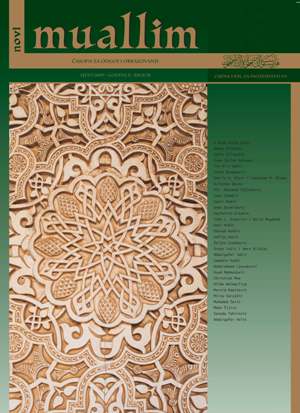IMPORTANCE AND CONCRETIZATION OF THE PROJECT GLOBAL ETHIC IN BOSNIA AND HERZEGOVINA FROM A MUSLIM PERSPECTIVE
DOI:
https://doi.org/10.26340/muallim.v10i38.930Abstract
Are global politics and a global economy possible? How, in fact, is globalization possible, when it includes so many fundamental uncertainties? Küng searches for answers to these questions in his work A Global Ethic for Global Politics and Economics, and argues: “Globalization of economy and technology requires global administration of global politics. However, globalization of economy and technology require global administration of global politics. But even global economy, technology and politics need to be founded on a global ethic. Global politics and global economy require a global ethic.” In other words, in his examination of the possibility of shaping the process of globalization, Küng follows a strategy according to which the common good must occupy centre stage, and choices must be made collectively on a global and international political level. Project Global Ethic tackles the problem of motivation in the movement towards ethical globalization by employing a different strategy from that embodied in the Western movement for human rights – a strategy which counts on values, standards, and the nurturing of ethnic and religious traditions of all peoples which can be fertile starting points for the establishment of a global ethic for human duties and rights. Rather, Project Global Ethic counts on world religions. Principally speaking, such a global ethic should not be controversial for Muslims. For if the Muslim world is experiencing globalization as a new form of colonization, this is one more reason for Muslims to insist on a global ethic and ultimately, a just globalization.
Downloads
Published
How to Cite
Issue
Section
License
Naknada:
a. Časopis ne naplaćuje naknadu za obradu članaka (APC) i naknadu za podnošenje članaka.
Autori koji objavljuju u ovom časopisu pristaju na sljedeće uvijete:
- Autori zadržavaju autorska prava i pružaju časopisu pravo prvog objavljivanja, pri čemu će rad jednu godinu po objavljivanju biti podložan licenci Creative Commons imenovanje koja omogućuje drugima da dijele rad uz uvijet navođenja autorstva i izvornog objavljivanja u ovom časopisu.
- Autori mogu izraditi zasebne, ugovorne aranžmane za ne-ekskluzivnu distribuciju rada objavljenog u časopisu (npr. postavljanje u institucionalni repozitorij ili objavljivanje u knjizi), uz navođenje da je rad izvorno objavljen u ovom časopisu.


